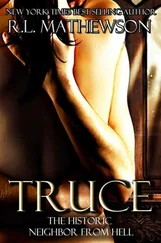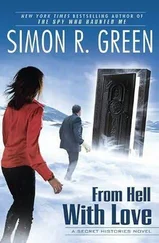It turned out to be a very small shop selling nothing but antique dolls. They stood for a moment looking in the window. “There’s something scary about old dolls, I always think,” said Charles. “All those watching eyes. I sometimes think a bit of the personality of each child who loved them is still there inside them.”
They entered the dark shop and walked in. Mr. John Dewey was sitting at a small table at the back of the shop. He rose to meet them. “Oh, it’s you again,” he said.
“I hope you got my cheque,” said Agatha.
“Yes, thanks.”
“Our conversation was interrupted.”
“I can’t think of anything else to tell you. Do you mind if I go on working?”
He sat down at the table and picked up a large Edwardian doll with only one blue eye. “Just getting a new eye for her,” he said. He had a tray of glass eyes in front of him. “It’s a matter of getting just the right colour and the right size,” he said.
“Ah, perhaps this.” He picked out an eye and carried it to the window. “Mmm, I think this will do.” He returned and sat down and held the doll on his lap. “Soon have you seeing the world again,” he said. With one deft movement he removed the head. “I fix it from the inside,” he said, looking up at them.
He looked so small and neat and absorbed in his work that Agatha blurted out, “How could you marry someone like Melissa?”
“I sometimes ask myself that,” he said. “I’d never bothered much about the ladies before. But then she seemed to have such a knowledge of antique dolls. Wait, I’ll show you something.” He put down the doll he was working on and went into the back shop.
“He’s weird ,” muttered Agatha. “If he comes back swinging a hammer, run for it.”
“What made you think of a hammer?” asked Charles. “They never found a weapon.”
“I always thought of a hammer, I don’t know why.” Mr. Dewey came back carrying a doll. “This is my favourite. Eighteenth-century. Do you notice these old dolls often have human faces?”
The doll had a leather face and green eyes. The hair was powdered and the dress was panniered silk. Agatha looked at it uneasily. She thought the doll had a mocking, knowing look. “What’s this doll got to do with Melissa?”
“Everything. We had been talking in the shop for a few weeks and then we occasionally had lunch, always talking about dolls. Then she said she had two tickets to a fancy dress ball in the town hall and would I come? I was very shy and said I didn’t dance, but she said it would be fun to dress up and watch the costumes.”
“What did you go as?” asked Agatha. “I went as Blackbeard, the pirate,” he said. Agatha tried not to laugh, he looked so neat and prim, cradling the doll in his arms. “I said I would meet her there. It’s only a short walk from here to the town hall. I must say, I felt quite different in my costume. I I even swaggered a bit. When I got there I looked around for her and what I saw first was not Melissa but this doll, my precious. She had copied this gown and had her hair powdered. I fell in love on the spot. I was dazed. I asked her to marry me before the evening was over.” He sighed.
“And how did the marriage break down?”
“As soon as we were wed, she stopped talking about dolls, showed no interest in them. And she wouldn’t ever wear the dress again. I asked her to wear it in the house, just for me, but she wouldn’t. She seemed to have become a different person, hard and brittle. I immersed myself in my work. But I wanted to save our marriage. It had been dragging on in a terrible way for over three years. I pleaded with her one more time to wear the dress and she said, ‘That’s it!” and she got a pair of kitchen scissors and she said she was going to cut my favourite doll to ribbons.
“My heart was beating fit to burst but I forced myself to speak in a calm and reasonable voice. I told her she didn’t have a key to the shop, that the metal shutters were down over the window and door and the burglar alarm set. I told her I would never ask her to wear the dress again. I told her to sit and I would fix her a drink. She drank a lot. I said I would mix her a special cocktail. I did. I opened up several of my sleeping pills and mixed up some concoction from the cocktail cabinet. I remember her eyes were hard and glittering as she drank it down. When she passed out, I tied her arms and legs very firmly. With wire.”
Agatha moved close to Charles.
“When she recovered, I said I was going to take her eyes out and replace them with doll’s eyes. Did I say I had gagged her as well? No? Well, I did. I told her I wanted a divorce, I wanted her to leave immediately. I told her to nod her head if she agreed. She nodded. I wanted to frighten her so much, you see, that not only would she leave me and divorce me, but that she would not attack me when I released her. As soon as she was free, she packed and left.”
Agatha looked at him, her eyes gleaming. “But you must have still loved her.”
“Why?”
“You learned somehow that she was having an affair with my husband, so you attacked him first, but he escaped, and you then killed Melissa.”
He gave a gentle little laugh. He did not seem at all upset Agatha’s accusations. “I am not a violent man. Oh, if you could have felt the relief I felt when she had gone. Did I say I could not dance? I meant, I was too shy to dance. But when she had gone, I waltzed around the house.” He took the doll’s tiny hand in his and waltzed round the shop.
Just then a customer walked in and he stopped dancing. “I will be with you in a minute,” he said. He retreated to the back shop with his doll.
“Let’s get out of here,” muttered Agatha.
They walked outside. The rain had stopped and patches of pale-blue sky were appearing among the ragged grey clouds far above them.
“We should tell Bill about this,” said Charles.
“Phew!” Agatha clutched his arm. “I could use a drink.”
They went into a pub. Agatha asked for gin and tonic and Charles had an orange juice. “Didn’t Bill say he had an alibi?” asked Agatha.
“No, he said Sheppard had an alibi. He didn’t say anything I about Dewey and we didn’t ask. I think we should tell him this. The man’s mad.”
Agatha took out her mobile phone. But she was told when she dialled police headquarters in Mircester that Bill had gone home.
“I hate seeing him at home,” mourned Agatha. “Those parents of his!”
“We’d better try anyway. Drink up!”
♦
The Wongs lived in a builder’s estate much like the one inhabited by Mr. Dewey. Bill’s father was Hong Kong Chinese, and his mother, from Gloucestershire. Mrs. Wong opened the door. She stared at them and then shouted over her shoulder, “Father, it’s that woman again!”
She was joined by Mr. Wong, who shuffled forward in a pair of carpet slippers. “May we speak to Bill?” asked Agatha. “It’s very important.”
“You should’ve phoned first to make an appointment.” He stood in the doorway with his wife at his side and neither of them showed any signs of moving. How could Bill ever hope to get married, thought Agatha, living as he did with these possessive parents?
She suddenly shouted, “Bill!” at the top of her voice, and was relieved to hear his answering voice, “Agatha?”
Reluctantly his parents backed away from the doorway and then Bill stood there, beaming. “Come in, come in. Perhaps we could all have some tea, Ma?”
“I’m not making tea for nobody,” grumbled his mother.
“Can we go into the garden, maybe?” suggested Agatha. “We’ve got some news that might interest you.”
“Sure.” Bill led the way through the house into the garden at the back, which was his pride and joy. They sat down at a garden table surrounded by a riot of flowers.
Читать дальше












